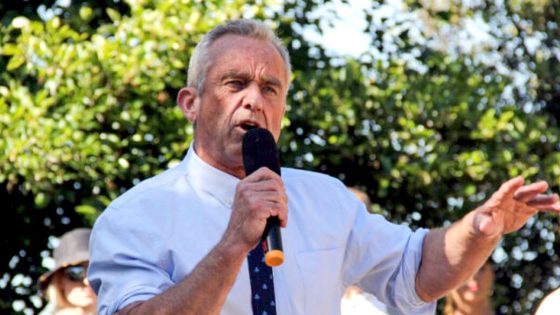Corporations are becoming less talkative about totalitarian ideologies such ESG and DEI amid unprecedented backlash from conservatives.
Environmental, social and governance (ESG) is a form of grading companies and countries — and soon people, experts warn — based on how well they conform to prevailing narratives on environmental and social issues. For example, the more “environmentally friendly” or “racially inclusive” a company purports to be, the more virtuous it is and thus more worthy of investment. If a company’s ESG score is below certain thresholds, they are not to be invested in at all.
ESG ideology, which has come to mostly refer to environmentalism and “climate change,” dictates that a company’s profits must sometimes take a backseat to saving the weather. Proponents of ESG include lawmakers, the world’s largest investment firms, and tech giants. BlackRock CEO Larry Fink, who manages $10 trillion in wealth, vowed to “force behaviors” when it comes to ESG.
Diversity, Equity and Inclusion (DEI) is an ideology which views humans according to skin color and genitalia and ascribes entitlements to some. DEI exploded into a multimillion-dollar industry in 2020 following the death of George Floyd, though DEI teams are often the first to be sacked in corporate layoffs.
But those ideologies came under attack in April. Anheuser-Busch’s decision to put a gender disoriented man’s face on Bud Light cans cost the company nearly $30 billion, a number that continues to climb. Target’s market cap has plunged by $15.7 billion since the corporation began promoting “pride” products for children, some of which include overt Satanism.
In the months that followed the boycotts, chatter about ESG and DEI on corporate earnings calls has dropped. According to an analysis of 575 earnings calls between April 1st to June 5th, mentions by executives of “environmental, social and governance,” “ESG,” “diversity, equity and inclusion,” “DEI” or “sustainability” have dropped 31% compared to the same period last year. Most of the executives who have grown silent are chief financial officers.
A Wall Street Journal report says this is the largest year-over-year decline and the fifth-consecutive quarter of year-over-year drops.
Many hope the decline in woke chatter is part of a larger distancing from ESG and DEI by America’s corporations.
Last month, shareholders in Warren Buffett’s globalist Berkshire Hathaway investment firm overwhelmingly rejected proposals related to ESG and DEI. The pushback against the DEI proposal clashed with remarks made two years ago by executives of Berkshire Hathaway Energy, Berkshire’s $21 billion subsidiary. Then, executives told employees that “meritocracy is a myth”.
“In our society, we are taught that anybody can achieve their dreams if they just work hard enough, try hard enough or ‘pull themselves up by their bootstraps,’” reads a document Berkshire Hathaway Energy emailed to employees.
“In reality, there is no such thing as a meritocracy; it’s a myth.”





























